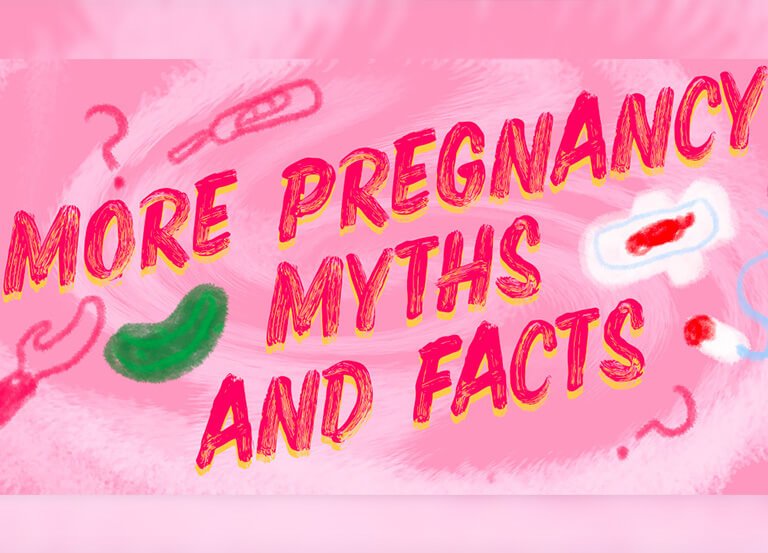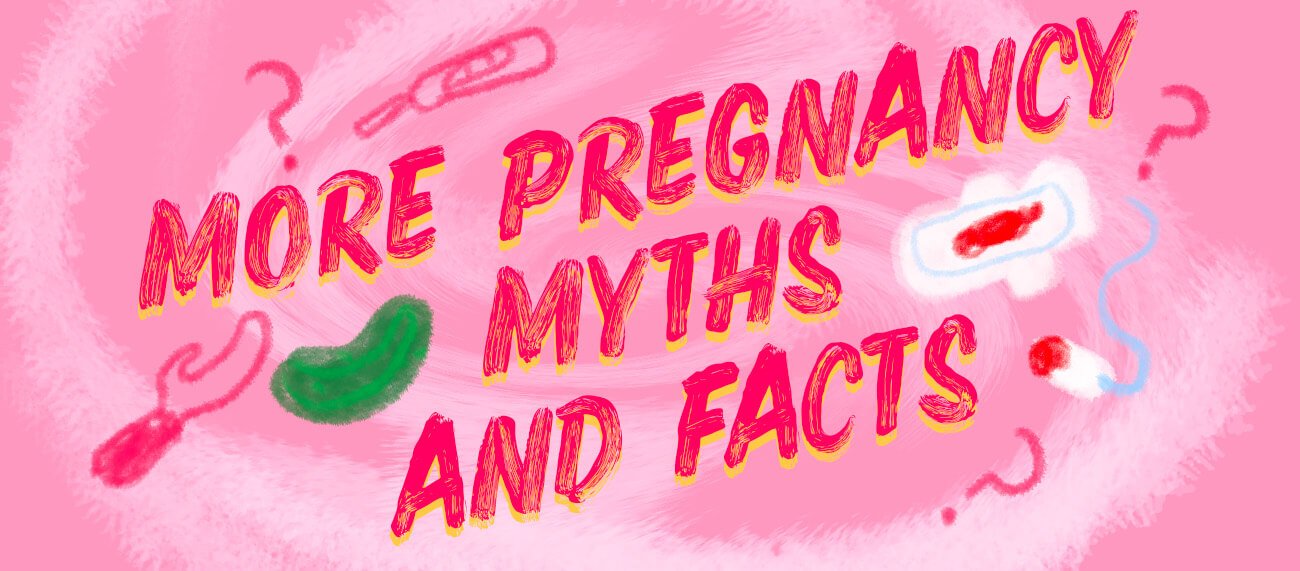More Pregnancy Myths and Facts
Every pregnancy is different, and there are a lot of stories and anecdotes masquerading as facts about pregnancy and conception. It’s amazing how many things we think we know about this relatively common life experience that turn out to be false when subjected to a little scrutiny. Did you know, for example, that you can get pregnant without having penetrative sex? If you’re trying to avoid pregnancy, you probably need to know that!
Some things are just blatantly untrue though. Like the myth that birth defects are a result of the pregnant person’s emotions during pregnancy. You might be able to see where the person who came up with that one was coming from, but it is very easily disproved. Here are some more pregnancy myths and facts you should know about!
MYTH: Everyone gets weird cravings when they’re pregnant
FACT: Some people do, but it’s not a given. You might also just crave normal foods – not everyone who has them is desperate for pickle ice cream noodle soup!
There’s no single reason for cravings. It could be because your tastes change during pregnancy as your hormones shift and alter the way your body works. Your sense of smell might be stronger, and you could also have a funny taste in your mouth (called dysgeusia, it’s often a metallic or sour taste and is most likely to occur during the first trimester) and these factors can impact what will taste good to you.
If you are craving inedible objects like coal or dirt, speak to your GP or midwife as these cravings can indicate vitamin deficiencies.
MYTH: Your cravings can tell you the sex of your baby
FACT: Cravings for ice cream and sweets do not indicate that you are having a girl, and no matter how desperate you are for savoury and salty snacks, it doesn’t mean that you’re having a boy.
None of these “tricks” you can use to predict the sex of your baby work, but with the odds at about 50/50 either way, it can be easy to find anecdotal evidence online or hear stories from people you know that seem to confirm their accuracy. The same goes for swinging a ring on a chain over your belly and looking at the direction it swings in, judging by the shape of your belly, how bad your morning sickness is, or what time it was when you had sex to conceive your child. While these little guessing games can be a fun way to pass the time while you wait to meet your baby, it’s important not to get super attached to a particular gender.
Gender disappointment can be very stressful and a real issue during a sensitive time. If you are experiencing anxiety around the sex of your baby, try discussing your fears with your partner or other people in your support system.
MYTH: you can’t have sex during pregnancy
FACT: Unless you have been told by a doctor or midwife not to have sex, you can have sex for as long as it feels good and comfortable! It will not hurt the baby. This is great news, as many people experience a higher sex drive and sometimes even more intense orgasms during pregnancy.
For some people, sex is comfortable and feels good throughout pregnancy, and for some people, it becomes very difficult or isn’t so enjoyable when heavily pregnant. Some people even use sex to try to initiate labour, although there is no evidence that this works. At most, the muscle contractions that happen when you’re having an orgasm may stimulate Braxton Hicks contractions, but these will not hurt you or the baby.
MYTH: You can be pregnant and still get your period
FACT: You can experience bleeding during pregnancy, but it won’t be a true “period”. Once your body starts producing human chorionic gonadotropin (hCG), you will no longer ovulate or have a period. The production of hCG supports the growth of the embryo but also signals to your body that you are pregnant and to stop menstruating.
If it were possible for you to experience a genuine period during pregnancy, it would end the pregnancy as the entire uterine lining is shed during menstruation.
You may experience implantation bleeding and have some spotting around the time your period is due. This is bleeding caused by a fertilised egg implanting in your uterus. This can be a little confusing because you may initially think this means that you are not pregnant, but this type of bleeding is lighter and shorter than a regular period.
During pregnancy, some people experience a subchorionic hematoma. This is when blood pools between the sac containing the foetus and the walls of the uterus, and causes vaginal bleeding. This has been mistaken for a period in quite a few cases, but will still likely be different to your usual period, whether in volume or severity of bleeding, timing, the absence of other symptoms you usually experience, or the presence of pregnancy symptoms. This does not mean that you have lost the pregnancy; most people who experience a subchorionic hematoma can carry on with an otherwise healthy pregnancy. This cannot be self-diagnosed and vaginal bleeding can be a symptom of other issues including an ectopic pregnancy or other forms of miscarriage, so it is important to seek medical assistance as soon as possible.
If your period is different to what you usually experience, or absent altogether, consider taking a pregnancy test and speaking to your GP about your concerns.
MYTH: You can’t get pregnant without penetration
FACT: If your partner ejaculates close to your vagina, or touches you with a finger, toy, or another object that has come into contact with ejaculate, there’s a chance that some semen could enter you and it could be possible for you to get pregnant. Anything that may allow sperm into your vagina carries some level of risk of pregnancy.
Even if you are choosing to opt out of having penetrative penis-in-vagina sex, and especially if that choice is about preventing pregnancy, it can be worth considering whether you might benefit from using some form of contraception. Condoms can help to protect you from STIs during oral or anal sex. If you are concerned about unplanned pregnancy and there is a chance you could get pregnant from a recent sexual activity, you may want to think about emergency contraception. ellaOne is a morning after pill that is effective* up to 5 days following unprotected sex or any instance where you are concerned that sperm may have entered you.
Surprised by what you’ve read here? You might enjoy reading about some spooky morning after pill myths! Or if you’re just feeling a little confused about how it all happens, why not find out how pregnancy works?
ellaOne® is the most effective morning after pill* and can be taken up to five days after unprotected sex (although it is the most effective when taken as soon as possible). You can pick it up at your local pharmacy or online.
*Verify at ellaone.co.uk/verify
ellaOne® 30mg film-coated tablet contains ulipristal acetate and is indicated for emergency contraception within 120 hours (5 days) of unprotected sexual intercourse or contraceptive failure. Always read the label.




